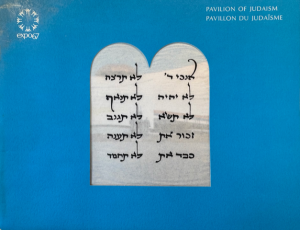 MONTREAL — There seem to be more people turning 100 these days, but Dr. Istvan Rozsahegyi is not just another centenarian.
MONTREAL — There seem to be more people turning 100 these days, but Dr. Istvan Rozsahegyi is not just another centenarian.
Dr. Istvan Rozsahegyi
Despite the inevitable infirmities that come with the landmark age, such as difficulty in hearing and some need for physical assistance, Rozsahegyi, who is also a Holocaust survivor, has retained the wit and intellectual rigour that served him well as the leading physician in Hungary, where he specialized in the treatment of decompression sickness, otherwise known as caisson disease or “the bends.”
Rozsahegyi’s apartment in a west-end seniors residence shows a level of intellectual vitality that belies his age. In one corner sits an Apple computer that he uses for e-mail. One of the books he is currently reading is Modern Science Writing, by Richard Dawkins. He has spent his retirement painstakingly translating a number of books into German and Hungarian.
Still, “I’m not the man I used to be,” Rozsahegyi deadpanned in an interview where he was joined by one of his step-daughters, Judith Florian, days after a birthday party in his honour drew close to 50 relatives and friends from as far afield as London, England.
“It’s a funny feeling,” the doctor replied when asked how it feels to be 100 years old, with his stepdaughter piping in that “he likes to say that he’s beginning his second hundred years.”
When she and her sister came to pick him up for his party and asked if he was bringing along his magnifying glasses, he retorted: “Why, are the guests so small?” she recounted with a laugh.
The recipe for a life so long?
Rozsahegyi never smoked, and drank only rarely. Physical activity and regular exercise – which he continues to this day – are key, he insisted, and if fish is on the menu, that is what he selects. He has continued stalwartly on, despite having had two hip replacement surgeries and needing to use a walker. He does not dwell on the prospect of death.
The world has changed in unfathomable ways since his childhood. The technological changes have been “outstanding,” he said, but values have eroded, with money “becoming God.”
Amazingly, Rozsahegyi did not leave Hungary for Canada until 2000, when he was 91. He came then with his second wife, Marta, whom he was married to for 46 years. She died last year. His first wife, Lizzi, died in 1956, and because the couple had had no children of their own, Marta’s daughters Florian and Agnes Frank became Rozsahegyi’s children “by proxy,” Florian said.
Perhaps the most remarkable aspect of Rozsahegyi ’s long life was the story of his activities during the Nazi era and his work to serve his fellow Hungarian Jews and medicine.
Born in Budapest, Rozsahegyi couldn’t study medicine there because of quotas against Jews, and he was forced to study in Vienna, Austria, and
Freiburg, Germany, where he earned his first medical degree in 1934. He finally received a Hungarian medical degree in 1937.
For the next decade, he was an internist at the Jewish hospital in Budapest, but for three years during the Nazi occupation of Hungary, the Nazis had him serve as medical doctor at various forced labour camps.
“I had nothing – no medicine, nothing,” Rozsahegyi said, but his primary obligation was to make prisoners healthy enough to return to their hellish toil.
Rozsahegyi came close to dying himself when he contracted typhoid fever, but after he recovered, he, along with other prisoners, were sent to the Mauthausen and Gunskirchen slave labour concentration camps.
After American soldiers liberated him, Rozsahegyi helped get Hungarian Jews back to Hungary, since Hungary was the only European country that did not help repatriate its Jews, he noted. The United Nations Relief and Rehabilitation Administration (UNRRA) expressed its gratitude by awarding him a certificate of valour.
Professionally, Rozsahegyi conducted landmark research into the development of decompression techniques to treat caisson disease (“the bends”), which causes embolisms to form in the blood when, for example, a scuba diver ascends too quickly.
In fact, so renowned is his work considered that Rozsahegyi was the man insurance companies and other doctors invariably consulted on issues related to decompression sickness.
The level of respect and recognition he received over his lifetime as a physician and as a medical researcher may explain why Rozsahegyi still bridles at the fact that government correspondence he received after arriving in Canada did not contain the word “Dr.” in the salutation.
“It still bothers him,” his stepdaughter said.






